The best BBQ Delivery Boxes in the UK from small sustainable British Farms
Written in Collaboration with The Ethical Butcher
“Regenuary” is an idea that has captured the imaginations of chefs, farmers and foodies across the UK. Essentially, it’s asking people to support farmers who farm ‘regeneratively’ – meaning they work in tune with nature and restore our ecosystems, while producing nutritious food.
The phrase was coined by Glen Burrows – a former vegetarian for 25 years, who is now co-founder of The Ethical Butcher – in a provocative Facebook post in January 2020 that questioned whether ‘Veganuary’ is the solution to our broken food systems.
By the end of the month, the post had over a million impressions and had been shared nearly 6000 times, with as many comments from all sides of the debate.
We caught up with Burrows to learn more about what Regenuary is and where it’s headed…
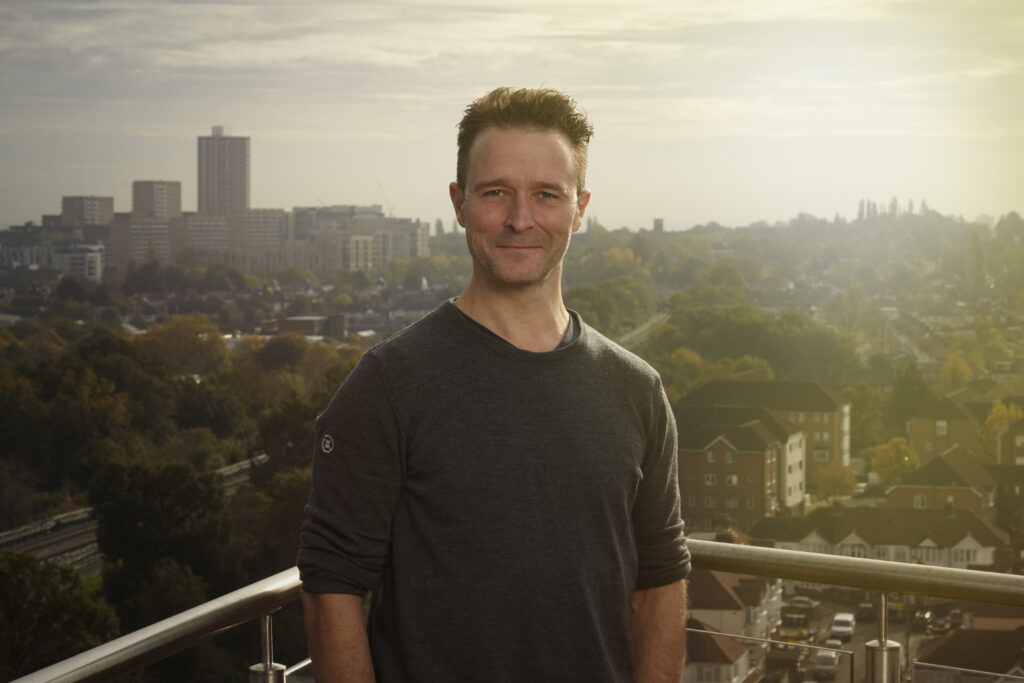
Live Frankly: You coined the phrase ‘Regenuary’ four years ago and it’s now something of a buzzword in food. How did the idea come about?
Glen Burrows: Regenuary was, initially, a reaction to Veganuary.
It was just after Christmas in 2019, and I was seeing posters for Veganuary, everywhere. Then I noticed they were from fast food brands, like KFC. That really got under my skin, because why should a brand like KFC be allowed to license Veganuary? I wouldn’t even go in there for a bottle of water, let alone eat their food – and I’m an omnivore.
It made me realise how easy it is to greenwash these types of movements. I was angry at KFC. And I was angry with Veganuary. So, I sat down at my computer to write a Facebook post, with a reasonably large glass of wine. And – like many great social movements that have come before, I’m sure – that’s how Regenuary was borne.
What was your goal?
I was annoyed by this very black-and-white narrative that everything animal-based is always worse and has a higher impact than anything plant-based, no matter where in the world it comes from and how processed it is. The initial rant – and the first post I wrote was a bit of a rant – was just trying to break that narrative down.
What really seemed to annoy people is that I crossed out the word Veganuary and wrote Regenuary. It was pretty provocative and I received death threats from vegan activists.
But, I also received an outpouring of support from chefs, farmers and omnivores, so I knew I was onto something.
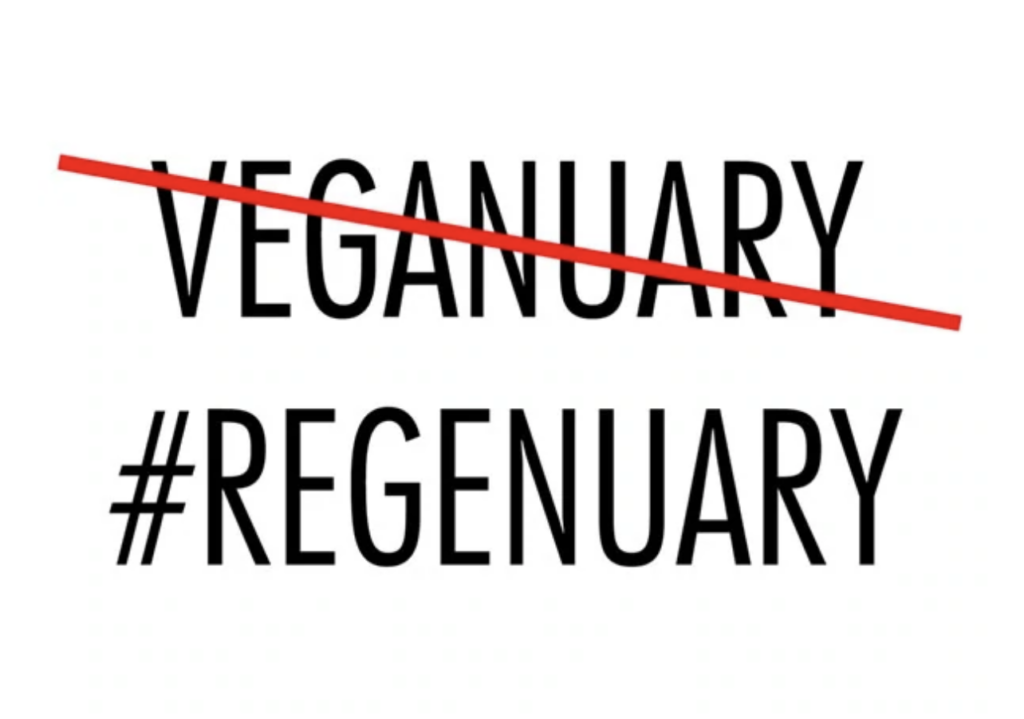
What did the Regenuary post actually say?
I looked at the difference in impact between an avocado and grass-fed beef. They’re both unprocessed products that provide our bodies with fats that we need to live, so I figured it was a good basis for comparison. Although, admittedly, I was taking the best case of animal agriculture and one of the worst forms of plant-based agriculture.
I love avocados, but I’m under no illusion that they’re good for the planet. Most come from Mexico. When you look at the carbon footprint and number of animal deaths a Mexican avocado eaten in London in January creates, it has a higher impact than a piece of British grass-fed beef. And that’s before we get into the cartel control of the avocado trade and the social issues.
Essentially, the point of the post was to encourage people to think more carefully about how we source our food. What can we get from regenerative agriculture? What can we get that’s local, seasonal, UK-based?
We need to have this conversation, rather than this black-and-white opposition of meat-based vs plant-based.
What does regenerative agriculture mean to you?
To me, it’s any form of agriculture that provides two functions. The first one is to feed us. The second needs to be about restoration: repairing an ecosystem, increasing soil carbon, improving biodiversity…
Basically, it’s a way of farming that creates an environment that works with nature and is therefore more resilient to change.
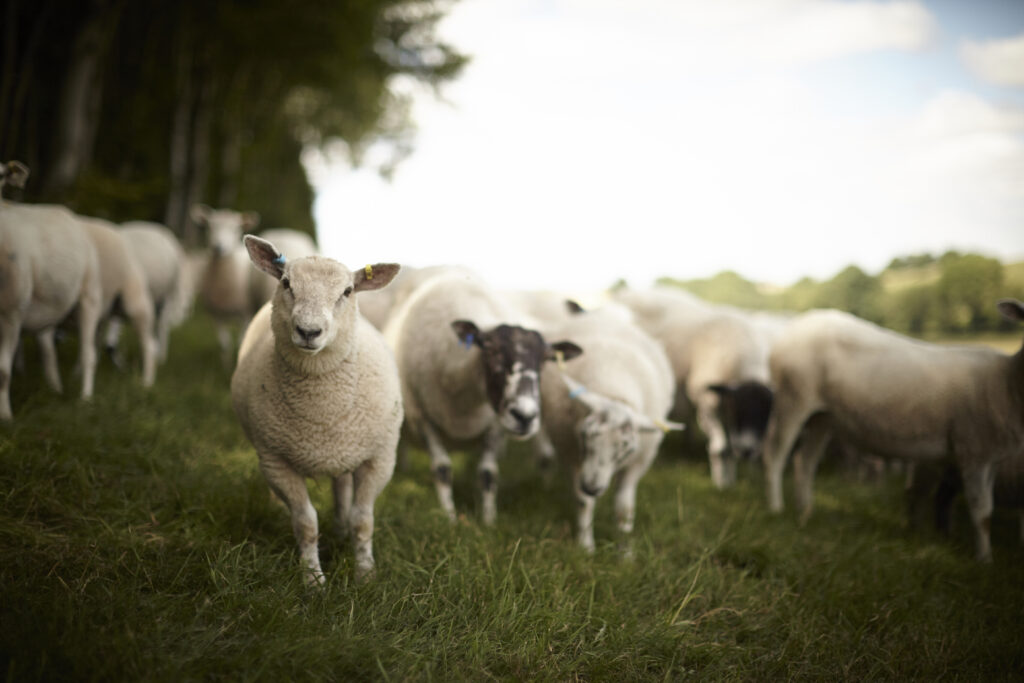
Is there a mutual ground between the Regenerative movement and Veganism?
We should all have the same goal, regardless of what we eat – that is to minimise the impact of everything we’re consuming. The division arises when we make over-simplistic narratives and form belief systems around them.
The argument that any non-animal food always has a lower impact than any animal-based food is simply wrong. We need to break that reasoning down.
Of course, there are other motivations for being vegan. Some people don’t want to eat animals. I understand that. I didn’t for 25 years.
You and your wife were vegetarian for 25 years and now you’re a co-founder of The Ethical Butcher. That’s quite the 180…
During the first year of my degree in food science nutrition in 1989, the BSE crisis was breaking and I learned about some pretty horrific practices in the meat industry.
I stopped eating meat as a protest against the way animals are treated. I wasn’t objecting to eating animals per se, more the way we do it.
We started eating meat again a few years ago for health reasons, and I wanted to be able to buy meat produced in a way I could trust.
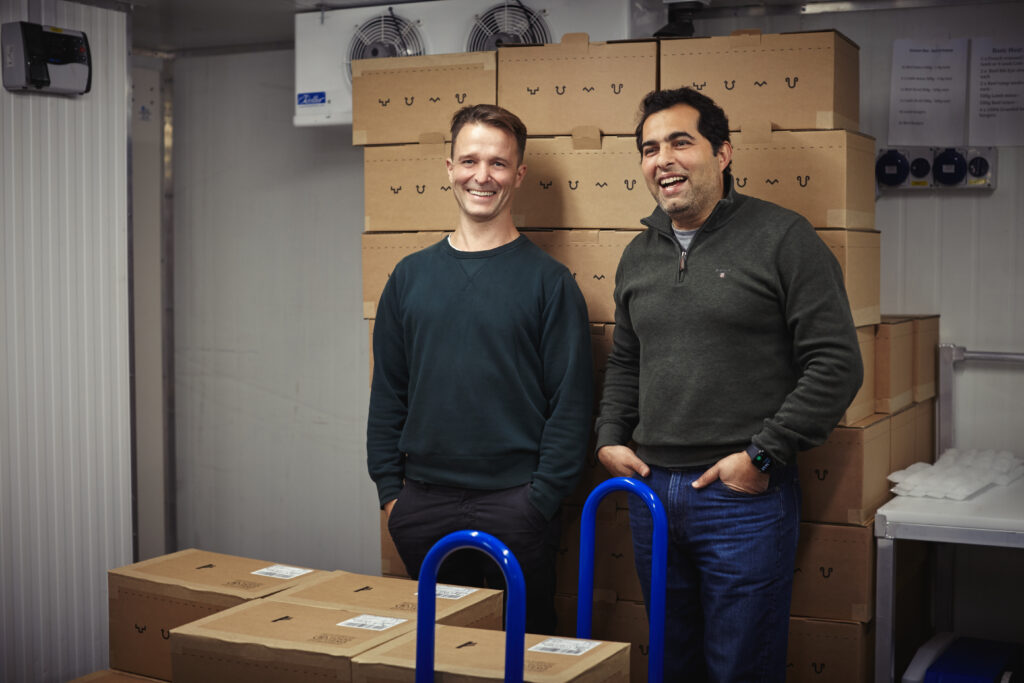
And that’s what you set out to offer with The Ethical Butcher?
The idea for The Ethical Butcher actually came from my co-founder Farshad. He’s the guy with all the experience in the industry. He wanted to create a business with better credentials, to look at impact, to think about the future of the meat trade.
There’s a lack of transparency in the meat trade that serves the industry very well. I think in a lot of cases, the consumer doesn’t know what’s going on – but, it also serves them to turn a blind eye. So, we set out to expose the reality of a lot of meat farming and to push the boundaries of best practice.
When we set it up, we intended it to be an industry disrupter.
I’m a great believer in driving industry change through consumer demand. So, we want to tell stories to the public to help them to understand the differences in how food is produced. We also want people to know that when they demand better, farmers will produce it.
A great example being our success with growing soy-free chickens. Everyone told us it wasn’t possible, but we believed it was and worked closely with a farmer to make it a success. Now, other farmers are following suit and soy-free chicken is even being sold in Morrisons.
You seem to be disrupting very successfully, so far. What has the response been like?
On the whole, it’s been fantastic and we have some very loyal customers.
Some people accuse us of being too political. But food is very political. Every decision, every bite, is political in some way.
There are very strong opinions from both vegans and regenerative meat eaters, and you have been very vocal in these debates. Where do you stand, now?
I’d love to continue to have the conversation if we can debate without scratching each other’s eyes out. We need to remove this sort of holier-than-thou infighting and accept that people are going to take different positions and follow different diets for different reasons.
As I said, the bottom line is, we all need to look at the impact of everything we consume.
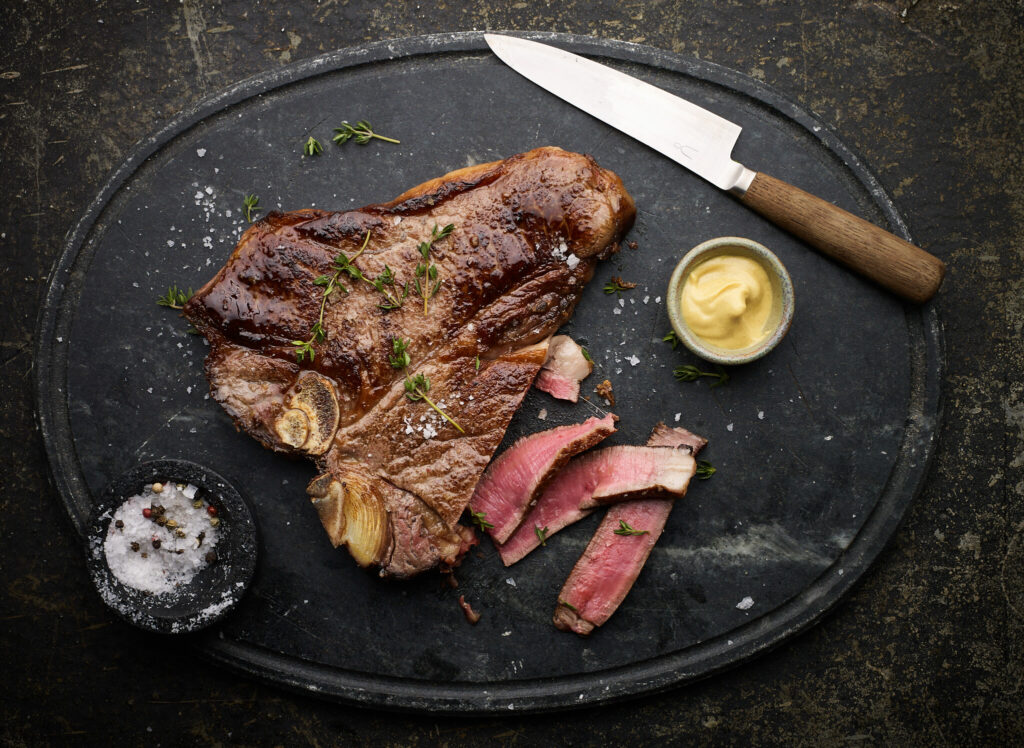
Regenerative Agriculture is still in its infancy. And there’s not yet certification. Is there a risk of brands jumping on the regenerative bandwagon and greenwashing like they did with Veganuary?
And as you said, there is no legal definition of regenerative. There are, undoubtedly, going to be brands taking advantage.
Regenerative agriculture needs to become a mindful model of continuous improvement, rather than a reductionist box ticking approach. If you’re not improving your weak spots, then you’re not regenerative anymore.
Two fairly solid metrics to measure are biodiversity and soil carbon.
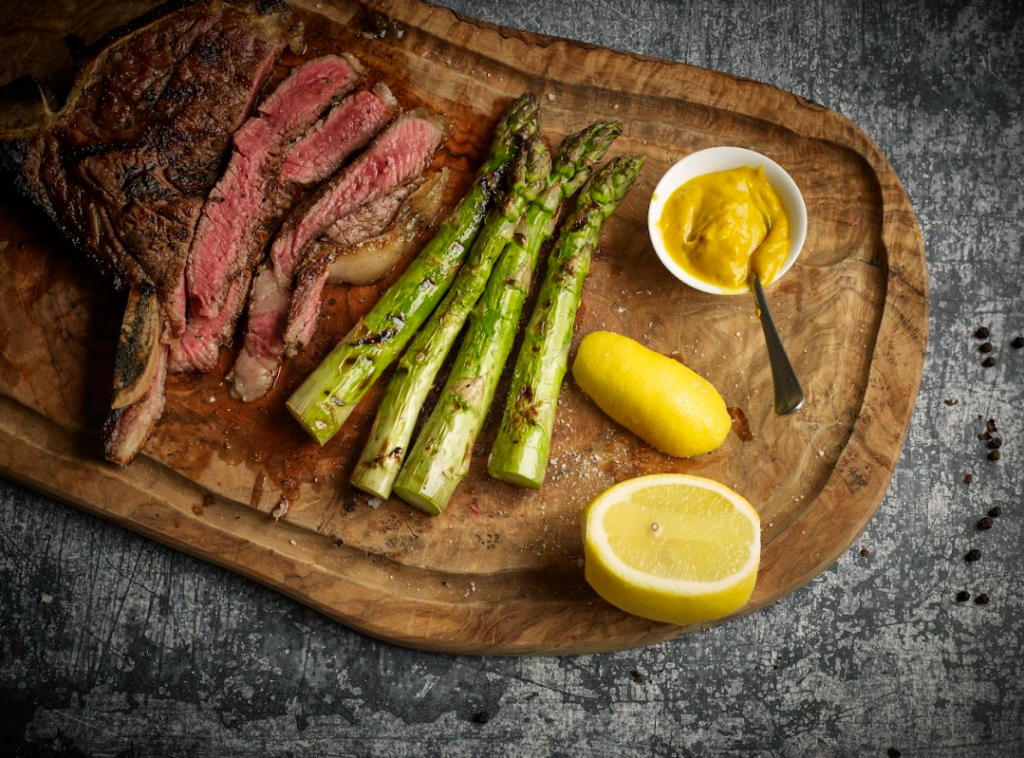
Does Regenerative Agriculture take into account the social aspect, such as treatment of people working on the farm?
Yes, it should.
This side of regen ag has to be considered. You need to be regenerating people’s lives and regenerating economies. And we need to stimulate that side of things as well.
It’s interesting, a lot of the farmers we work with were scared to take the jump into these regenerative methods. But, when they do, suddenly they find that their input costs are almost down to zero. In this way regeneration has an economic benefit, too.
So, what’s next for Regenuary?
It’s time to consider how we can take Regenuary beyond January to become an ongoing thought process.
This is not just about meat. It’s a philosophy for grains, oils, dairy, fish, vegetables, fruit, and even processed foods.
Originally published in 2021, updated for 2023


